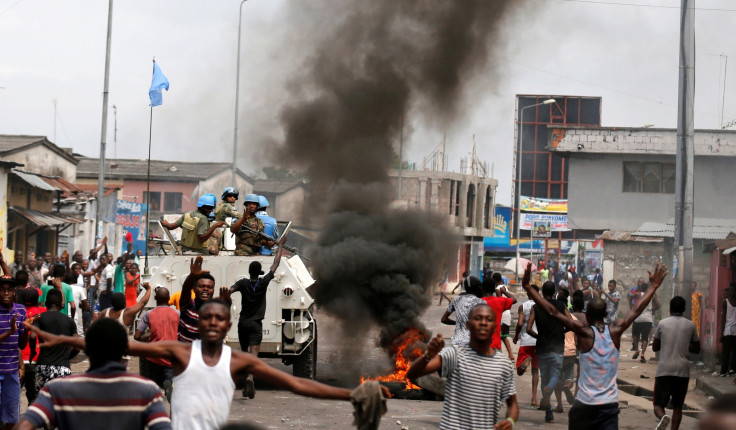DRC: Drastic cuts to the world's biggest peacekeeping mission is 'playing with fire' warns France
5,190 human rights violations were recorded last year alone, with state agents responsible for 64%.
As the Democratic Republic of Congo (DRC) totters in the wind of political uncertainty, France warned that severe cuts to the UN's MONUSCO peacekeeping force in the giant African nation would equate to "playing with fire".
The warning shot from France's ambassador to the UN, Francois Delattre, on Tuesday (21 March), came as question marks linger over whether President Joseph Kabila will relinquish power after his mandate expired in December, leading to unrest and violence.
An agreement between the Congolese opposition and government was struck on 31 December 2016, paving the way for elections to be held by December 2017. However, as the two sides continue wrangling over the appointment of a new prime minister, the deal is yet to be implemented.
"The DRC is at a crossroads," Delattre said ahead of a UN Security Council meeting. "We should not be playing with fire when it comes to such high stakes," he added.
According to Bloomberg, the US provides nearly 30% of the UN's $7.9bn (£6.3bn) peacekeeping budget – but the Trump administration is intent on a significant reduction in funding for foreign aid and international organisations in order to spend more on US defence.
As Washington reviews the organisation's 16 peacekeeping missions, the DRC could be caught in the crosshairs as it is home to the UN's biggest and costliest operation in the world.

MONUSCO involves around 22,400 people, including nearly 17,000 troops and more than 1,350 police. It has an annual budget of $1.2bn.
Earlier this month, Secretary-General Antonio Guterres requested the Security Council to supply the force with an additional 320 UN police and 36 armoured personnel carriers and said he was "deeply disturbed by the sharp increase in human rights violations".
MONUSCO's mandate expires at the end of the month and with elections scheduled to take place this year, negotiations over its future will be taking place over the next week, culminating in a vote on renewing its mandate on 29 March.
After yesterday's meeting, Britain's UN Ambassador and current council president, Matthew Rycroft said there was "some support for a reduction in numbers".
However, Rycroft added, "with elections coming up by the end of the year, [now] is not the moment to reduce in any way the ability of MONUSCO to provide protection of civilians".
The UN's envoy to Congo, Maman Sidikou, warned the Security Council there is a high risk of electoral-related violence. "This is likely to rise further, the longer the implementation of the 31 December Agreement is stalled, prolonging the current political uncertainty," he said.
Sidikou added that a spike in violence in certain areas of the country has been exacerbated by political uncertainty.
"The year 2016 witnessed a 30% increase in human rights violations compared to 2015, with MONUSCO documenting a total of 5,190 human rights violations throughout the DRC. State agents were responsible for 64% of these, and armed groups were responsible for the remaining 36%," he added.
2017 is the year the DRC contends with two stark realities: either it will witness democratic elections and its first peaceful transfer of power, or the spectre of further violence fuelled by unlawful and excessive government force.
© Copyright IBTimes 2025. All rights reserved.






















